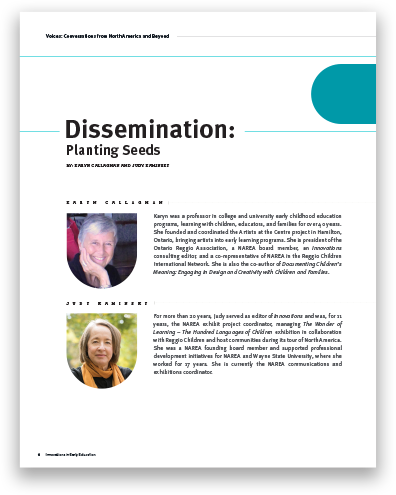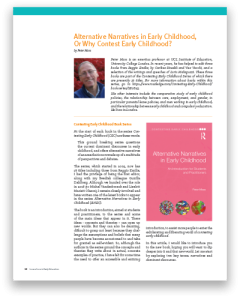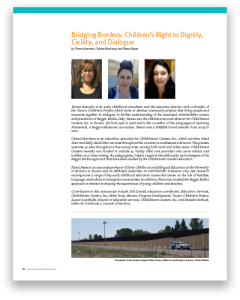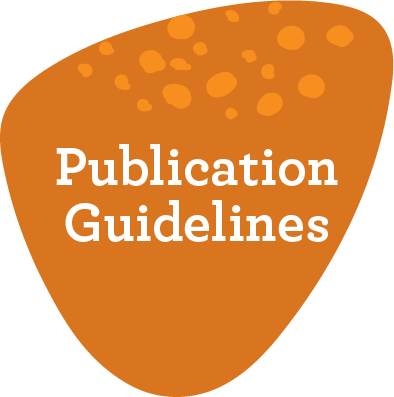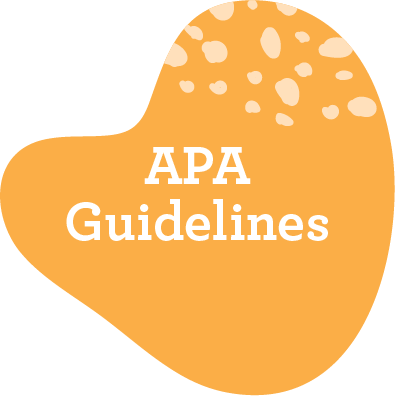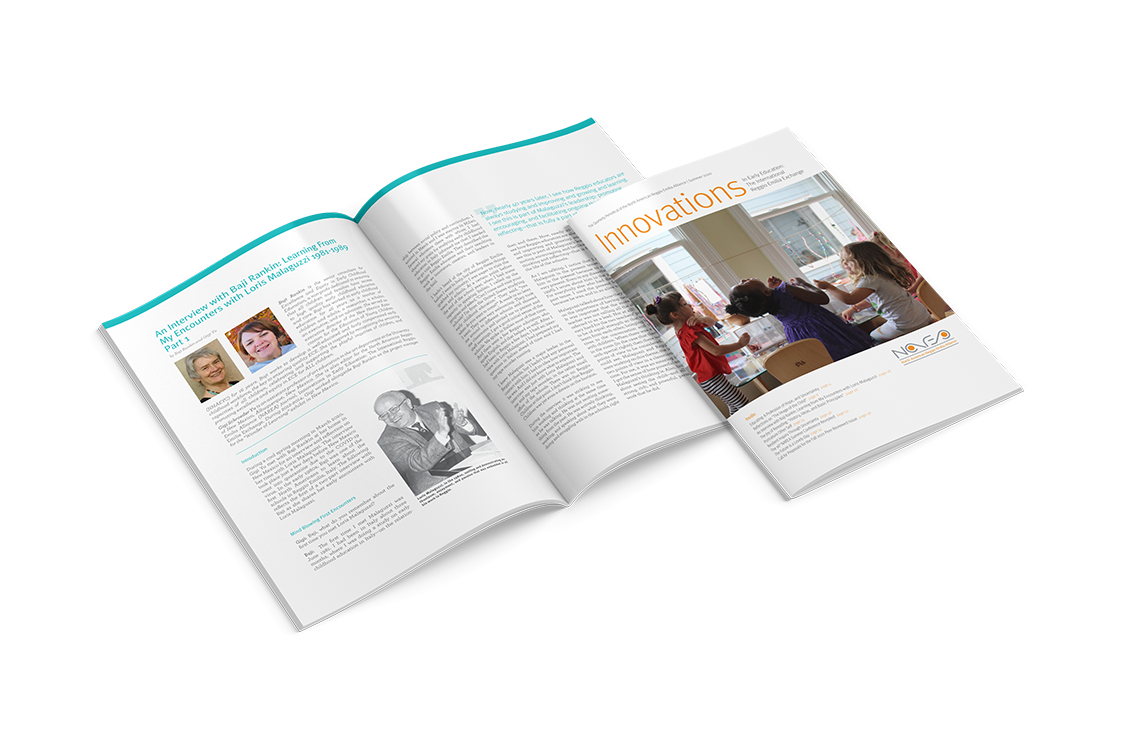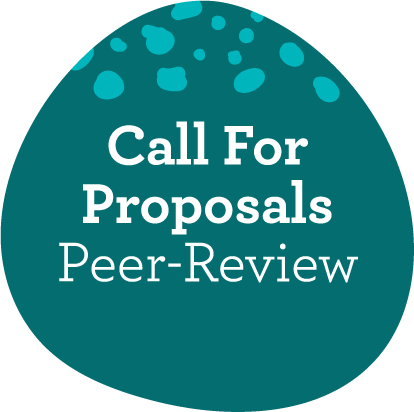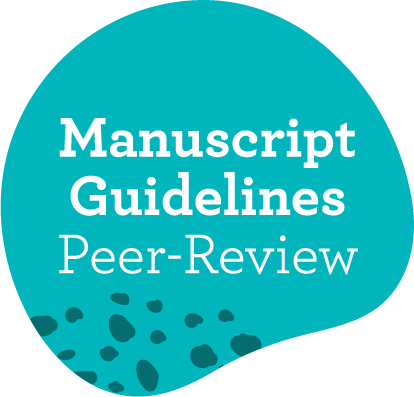Articles
Free Annual Article
NAREA offers complimentary membership to all interested persons, which includes an array of benefits. One article per year of Innovations is granted at no cost. This periodical is a valuable resource for Reggio-inspired educators, advocates, parents, and schools. If you would like to upgrade from complimentary to subscriber member, you will receive two full issues each year, enabling you to stay updated by educators from Reggio Emilia, North America, and beyond.
2025
Deeper Dialogue and Reflection Through Documentation: Moving From Telling Stories About Children’s Interests to Uncovering Children’s Theories, Ideas, and Strategies
by Susan Stacey | Vol. 32, No. 1 | pp. 22–33
Susan Stacey’s study of the Reggio Emilia Approach spans decades. She currently teaches at Mount St. Vincent University in Halifax, Nova Scotia. Stacey describes her “long-term relationship with pedagogical documentation,” in which documentation has emerged as “a relational tool, with the potential to connect us with other protagonists in our learning community” and which has “the potential to be a mirror on our practice.”
2024
The Relationship Between Theory and Practice as a “Dance of Knowledge”
by Daniela Lanzi | Vol. 31, No. 3 | pp. 6–9
This article is from Reggio Emilia, by Daniela Lanzi, pedagogista, head of pedagogical coordination, and member of the management staff of the Preschools and Infant-toddler Centers – Istituzione of the Municipality of Reggio Emilia. Through the metaphor of the dance of knowledge, Lanzi reaffirms that “the question of the relationship between theory and practice has been a common thread in the thoughts, projects, daily life, and education of the municipality of Reggio Emilia’s infant-toddler centers and preschools for over 60 years.”
2023
Dissemination: Planting Seeds
by Karyn Callaghan and Judy Kaminsky | Vol. 30, No. 1 | pp. 6–25
Remembering and Honoring: The North American early childhood community says goodbye to a remarkable woman who helped bring the Reggio Emilia Approach to life—Lella Gandini. Her passing leaves a profound impact on our North American community, and her legacy invites us to carry forward a vision for the possibilities of bettering the lives of young children through Reggio-inspired theory and practice.
2023
Movement in Nature: A Threshold for Knowledge Through Relationships, Connection, and Empathy
by Marcela Caceres-Gelinas, Elisia Wellington, and Michelle Lagunas | Vol. 30, No. 1 | pp. 26–45
This article is based on an in-depth study at Bright Start Child Development Center in Santa Barbara, California. The authors describe giving children time and space to construct meaning with each other and the environments. The stunning images of children and their works and words reflect the hundred languages serving as thresholds for interweaving, languages of the body, drawing, painting, and sculpture to create new insights and meanings about the natural world and trees.
2022
Deconstructing Science and Democracy: Making Meaning in a Convoluted Era
by Alex Morgan | Vol. 29, No. 1 | pp. 18–33
Author describes a relationship with uncertainty in scientific inquiry and in co-researching with children at Boulder Journey School. By engaging in questioning, observing, reflecting, analyzing, and experimenting alongside children, democratic values were embraced.
2021
A Partnership with Nature: An Urban School’s Collaborative Study
by Kristin Brizzolara Vazquez & Karen Haigh | Vol. 28, No. 1 | pp. 28–45
Authors share experiences from Velma Thomas Early Childhood Center, a Chicago Public School Child-Parent Center. Teachers from seven classrooms, along with Veronica Cline, parent educator, share individual stories from the nature-focused classroom studies. These stories offer a window into the larger narrative with Sobel’s design principles of nature running throughout.
2020
An Invitation to Participate in a Teacher Research Collaborative: Children and Trees in Relationship
by Jeanne Goldhaber | Vol. 27, No. 1 | pp. 36–43
On behalf of the Reggio Inspired Vermont Early Education Team (RIVET), Jeanne Goldhaber, associate professor emerita at the University of Vermont, introduces and invites participation in a collaborative research project focused on children and trees in relationship. The ongoing project will consider the possible meaning we have ascribed to the children’s and trees’ encounters and ways through which we might learn more about and deepen their relationships.
2019
Alternative Narratives in Early Childhood, Or Why Contest Early Childhood?
by Peter Moss | Vol. 26, No. 1 | pp. 12–21
Peter Moss, emeritus professor, presents a case for the Reggio Emilia Approach, pointing out the common tendency to use stories, starting from very early childhood, about our individual selves and experiences to define us. However, a story, Moss explains, is only an interpretation, and alternative narratives in early childhood are called for. In addition, Moss emphasizes how dominant discourses by powerful institutions overtake and direct perception, influencing such paramount aspects of society as early childhood education.
2018
Bridging Borders: Children’s Right to Dignity, Civility, and Dialogue
by Teresa Acevdo, Celena Martinez, and Iliana Reyes | Vol. 25, No. 3 | pp. 18–33
Innovations is pleased to make one of its peer-reviewed articles available to the public audience. NAREA is grateful for the collaborations in North America that give visibility to children, families, teachers, and communities. Too often, adults speak on behalf of children. Here, in this timely and poignant article, listen to the views of children and adults as they go about their daily lives in a community that happens to be located along the United States/Mexico border.


